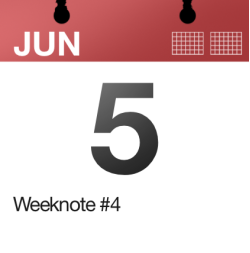What I talk about when I talk about user outcomes – #6 – Open Educational Resources
My three main areas of research are Open Educational Resources (OER), Mobile Learning and Digital Literacies. I have no problem talking and writing about the latter of these – it is, after all, the subject of a thesis I’ve been writing for the last few years. Mobile learning, too, presents no great issue: I used mobile devices in the classroom as a teacher and Director of e-Learning. Moreover, because it’s a relatively new area there’s only a few ‘experts’ to which to defer.
OER is a different kettle of fish. Not only is it a increasingly-mature area of study but it’s a political minefield. Coupled to the fact that it’s very much a Higher Education-focused area of enquiry, I haven’t ventured many opinions publicly. However, as I continue to develop the OER infoKit with consultant Lou McGill I feel that I do have something to say about OER.
So here goes… (and this is my opinion, not my employer’s, etc.)

Recently I’ve been going back through the key posts in the OER debate curated by Lou McGill on the OER infoKit here. It makes for fascinating reading as, not only are there some very intelligent people arguing against each other (always interesting!) but it’s evident that OER is a battleground not over educational practice but ideology.
I’m a big fan of the philosophy of Pragmatism, as espoused by Charles Sanders Peirce and William James, and developed by luminaries such as John Dewey, W.V. Quine and Richard Rorty. My rule of thumb is that things worth pursuing should be ‘good in the way of belief’. In fact, it’s probably worth wheeling out the 10 guiding statements about what Pragmatism means from my thesis:
- Pragmatism is an anti-skeptical endeavour.
- Dividing lines between theory and action are arbitrary.
- Truth is conditional and dependent upon a community of inquirers.
- Human experience of the external world is ineffable.
- Pragmatism is method of ‘un-thinking’ rather than providing an explicit framework.
- A universally-held set of beliefs is impossible.
- Any statement can be accommodated as ‘true’ by amending a belief system to a greater or lesser extent.
- Knowledge is a matter of social practice rather than mirroring nature.
- We ‘create’ rather than ‘discover’ truth.
- New concepts are often understood through metaphor, enter common usage, and then ‘die off into literalness’.
So, what has this got to do with ‘user outcomes’? I think there’s three points I’d like to make about OER in this regard.
1. There’s nothing special about OER
Stripped back to basics, there’s nothing magical or especially revolutionary about Open Educational Resources. An educator allows others to use the materials they prepared. This has been happening ever since people have been able to share things.
The revolutionary thing comes in the co-ordination of the system around such sharing. The first massive massive boon to this has been the widespread adoption of Creative Commons licenses. These allow resource creators to state explicitly the conditions under which others can use what they have created. The second, which is perhaps where organizations such as JISC have been instrumental, is the expansion of open-access repositories like Jorum. Instead of merely unco-ordinated and fragmented institutional and personal repositories, there is a growing expectation that a copy of OERs will be deposited in such repositories.
As Mike Caulfield puts it, people do things out of habit because of established frameworks. He uses the simile of recipes:
If a recipe had to explain everything about cooking — what it was to beat an egg, what it meant to mix something, how broiling differed from sauteeing — well, no one would write recipes, and no one would use them. Recipes exist in a system of cooking that is relatively narrowly defined — the framework is in place, it just needs this thing called the recipe to work.
If we want people to share OERs then we need to make it easy for them to do so. But more than that, it needs to become just another thing that’s expected of educators.
2. There are no meaningful metrics for OERs
Not everything that can be measured should be measured; the pig doesn’t get any fatter by weighing it. If sharing and openly-licensing resources is a good thing that educators should do, then it needs to be an expected part of professional practice.
As I have often said with metrics such as numbers of followers on Twitter or winning awards, true influence is a fickle beast. Quantity is not quality. So what if one resource has been used 100,000 times and another one only 14? Unless you know in what circumstances and for what purposes it was used in each case, the task is meaningless. And even then the parts can be more than the sum – just look at the REF.
David Kernohan, JISC programme manager for OER, gets this I think:
The point is that OER release is adding to and improving the quality of the sum of human understanding, in an even more profound way than a research paper or press release. A good OER is written to support deep learning and this is the advantage that academia, which is unique in grappling with these issues every day, can bring.
An OER might never find itself being reused, but the process by which it is created is inherently valuable. It’s about mindsets, not metrics.
3. It’s not about OER, it’s about Openness
I can feel the vitriol that this comment will no doubt engender, but just how many people banging on about OER have taught in a classroom environment? And I don’t mean the occasional webinar or guest lecture, I mean preparing lessons day-in, day-out over years. It makes a difference to the way you approach the issue.
Scroll back up and read statements 2, 6 and 8 again. Whilst academic ideas and debates are important, the point – to paraphrase Marx – is not to describe the world but to change it. Waiting for everyone to agree about OERs before getting on and doing something about changing the system is a fool’s errand. No amount of posturing changes practice.
What’s much more important is to change the mindsets of educators so that OER release and reuse is an outflow of something they want to do. Thankfully, I think that Amber Thomas (another JISC programme manager) understands this:
Its worth saying… that of course open content isn’t just about the content … because it is also a manifestation of a way of working … and the benefits of the open way of working are:
- knowing that content will be public is an incentive to improve the content
- collaborative development improves the work: the many eyes principle
- the best thing to do with your data/idea will be thought of by someone else
- if the public have paid, the public should benefit
- clarity of licensing makes re-use easier
- free at the point of use can save £cash and time
- it can invite commercial exploitation downstream
- visibility increases reputation, brand awareness, recruitment
It would be remiss of me not to reference the excellent critiques of OER by Joss Winn and Richard Hall at this point. Read them, they’re eye-opening and staggeringly well-written.
Conclusion
Sadly, what I think is almost entirely lacking in the debate (apart perhaps from in Amber’s commentary) is an understanding that OER is merely a supply-side term for something that, let’s face it, educators should be doing anyway. Joss Winn’s qualms noted, it still seems manifestly obvious that if educators are funded by the taxpayer then what they do should be for the public good. And to my mind, that includes being as open as possible. I’m not particularly bothered if OERs are good for marketing, good for career progression or good for the REF. They’re good in the way of belief.
Bonus: check out posts tagged OER at my work blog.
Image CC BY-NC henrikj

 This week I have been mostly…
This week I have been mostly…